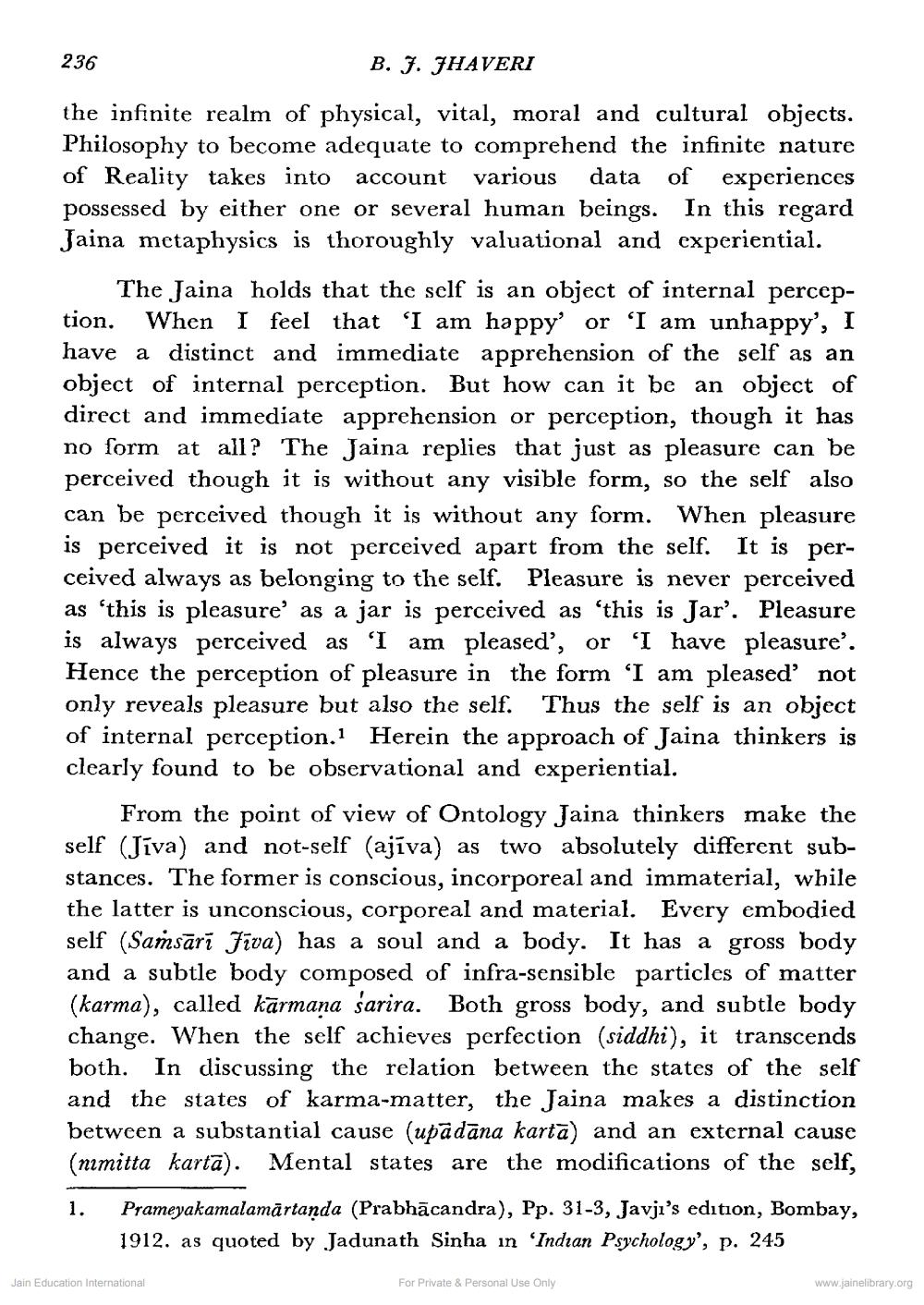________________
236
B. 3. JHAVERI
the infinite realm of physical, vital, moral and cultural objects. Philosophy to become adequate to comprehend the infinite nature of Reality takes into account various data of experiences possessed by either one or several human beings. In this regard Jaina mctaphysics is thoroughly valuational and experiential.
The Jaina holds that the self is an object of internal perception. When I feel that 'I am happy or 'I am unhappy, I have a distinct and immediate apprehension of the self as an object of internal perception. But how can it be an object of direct and immediate apprehension or perception, though it has no form at all? The Jaina replies that just as pleasure can be perceived though it is without any visible form, so the self also can be perceived though it is without any form. When pleasure is perceived it is not perceived apart from the self. It is perceived always as belonging to the self. Pleasure is never perceived as 'this is pleasure' as a jar is perceived as 'this is Jar'. Pleasure is always perceived as 'I am pleased', or 'I have pleasure'. Hence the perception of pleasure in the form 'I am pleased' not only reveals pleasure but also the self. Thus the self is an object of internal perception.1 Herein the approach of Jaina thinkers is clearly found to be observational and experiential.
From the point of view of Ontology Jaina thinkers make the self (Jiva) and not-self (ajīva) as two absolutely different substances. The former is conscious, incorporeal and immaterial, while the latter is unconscious, corporeal and material. Every embodied self (Saṁsārī Jiva) has a soul and a body. It has a gross body and a subtle body composed of infra-sensible particles of matter (karma), called kärmana sarira. Both gross body, and subtle body change. When the self achieves perfection (siddhi), it transcends both. In discussing the relation between the states of the self and the states of karma-matter, the Jaina makes a distinction between a substantial cause (upādāna kartā) and an external cause (nimitta kartā). Mental states are the modifications of the self, 1. Prameyakamalamārtanda (Prabhācandra), Pp. 31-3, Javji's edition, Bombay,
1912. as quoted by Jadunath Sinha in 'Indran Psychology', p. 245
Jain Education International
For Private & Personal Use Only
www.jainelibrary.org




